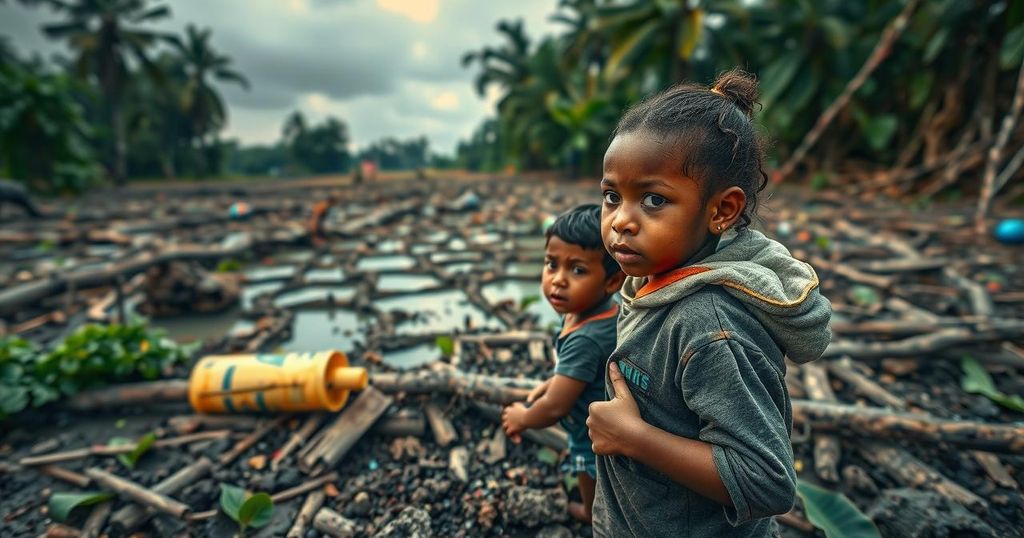UNICEF Reports Severe Child Impact Due to Amazon Drought, Urges Immediate Action

The UN reports that over 420,000 children in the Amazon are impacted by a severe drought affecting resources across Brazil, Colombia, and Peru. UNICEF urges leaders to enhance climate financing and take immediate action to alleviate the crisis, which has disrupted education and healthcare in the region. Scientific assessments link the drought to the ongoing El Nino phenomenon, exacerbating existing vulnerabilities and calling attention to the urgent need for international support.
The recent report from the United Nations Children’s Fund (UNICEF) highlights the alarming impact of unprecedented drought conditions affecting over 420,000 children across the Amazon Basin. This drought, characterized by dangerous water scarcity, is particularly affecting Indigenous and other communities in Brazil, Colombia, and Peru. As the climate crisis unfolds, UNICEF calls for urgent action from global leaders at the upcoming COP29 summit to enhance climate financing aimed at protecting vulnerable populations, especially children. The ongoing drought, persisting since last year, has severely disrupted vital resources, leading to closure or inaccessibility of over 1,700 schools and more than 760 medical clinics in Brazil. In Colombia, 130 schools have halted classes due to a lack of food and drinking water, compounded by similar issues in Peru where more than 50 clinics have become inaccessible. UNICEF emphasizes the dire need for $10 million to address these crises, which include providing essential water supplies and health services to affected communities. Scientific analyses from organizations such as NASA and the European Union’s Copernicus Climate Change Service attribute the drought to the EL Nino phenomenon. This has led to reduced rainfall, exacerbating forest fires and endangering hydroelectric power generation across various regions in South America. Despite these challenges, Brazil’s Environment Minister expressed optimism about confronting climate change, citing a reduction in deforestation rates in the Brazilian Amazon. This situation highlights the urgent need for collaborative international action to mitigate the effects of climate change and secure the health and future of younger generations living in the Amazon.
The Amazon Basin, vital for global ecological health, is currently facing one of its worst droughts, which has led to severe repercussions for local communities reliant on its resources. According to UNICEF, more than 420,000 children are significantly affected by this crisis, with dire implications for their access to food, water, and health services. Compounded by natural phenomena such as EL Nino, this drought exposes deepening vulnerabilities within Indigenous and other communities, calling for an urgent global response to support affected populations during this challenging time.
In conclusion, the record drought in the Amazon Basin poses significant risks to over 420,000 children, highlighting an urgent need for increased climate financing and immediate humanitarian assistance. The alarming statistics underscore the interconnectedness of climate health and child welfare, calling for robust international cooperation. As nations prepare for the COP29 summit, the imperative for collective action against climate change and support for affected communities is more critical than ever.
Original Source: www.aljazeera.com






